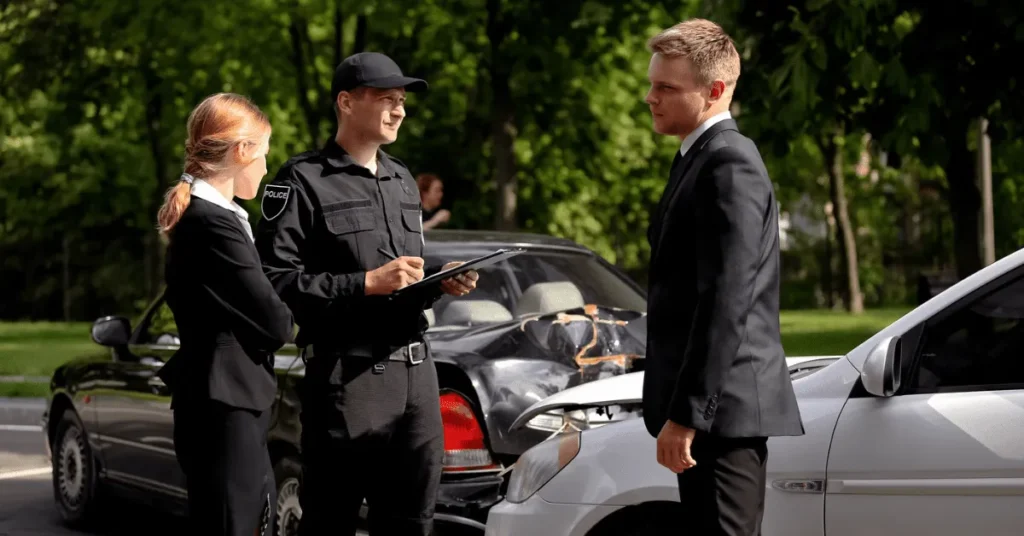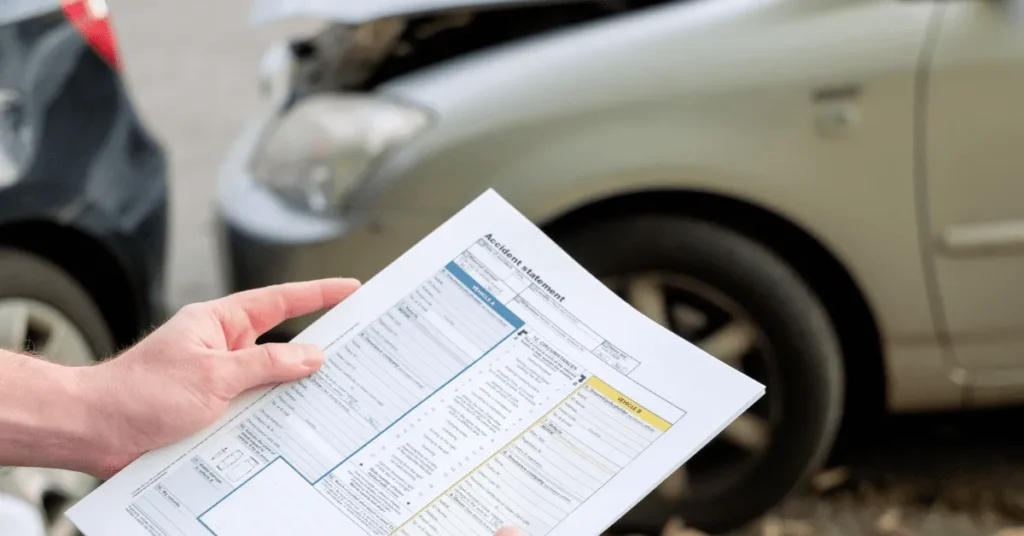Imagine being a car accident victim, suffering from a whiplash injury that leaves you in pain and unable to work. You’ve followed all the steps—getting medical treatment, filing an insurance claim, and seeking compensation for your medical bills. But then, your injury claim is denied. Why does this happen, and can a whiplash claim really be refused in Nevada?
The problem is real: insurance companies often scrutinize whiplash injury claims, looking for ways to minimize payouts or deny them outright. They may argue that the injury is minor, unrelated to the accident, or unsupported by medical evidence. For accident victims already dealing with the stress of recovery, this adds another layer of frustration.
But there’s a solution. At Temple Injury Law, we’ve helped car accident victims fight back against unfair claim denials. With a strong personal injury lawsuit or an appeal, you can challenge the insurance company’s decision and demand the compensation you deserve. When your medical bills pile up, and your recovery is on the line, understanding your rights and having skilled legal support can make all the difference.
In Nevada, knowing the laws around whiplash injury claims and insurance coverage can protect you from falling victim to these tactics. Let’s explore what to do if your claim is refused and how Temple Injury Law can help. We will also provide tips that aim to help strengthen your case and recover compensation immediately.
Grounds for Whiplash Claim Denials in Nevada

Whiplash claims can be complicated, and even with the distress of an injury, understanding why a claim might get refused is essential. In Nevada’s bustling streets, especially in Las Vegas, where car collisions aren’t uncommon, knowing the ins and outs of insurance policies and whiplash symptoms becomes vital.
Insufficient Medical Documentation
After a rear-end car crash, victims often suffer from whiplash injuries. You need thorough medical records to get compensation from insurance or through legal action. If your health report is incomplete or lacks evidence of prompt treatment, your injury claim may get rejected.
Proper documentation highlights your injuries and shows insurers that you took your condition seriously from the beginning. If there’s any suggestion that your whiplash symptoms might have existed before the Vegas car accident and are not solely a result of it, be prepared for resistance.
Disputes Over Liability and Evidence
In personal injury law, evidence carries more weight than words, especially for common injuries like whiplash in motor vehicle accidents involving government employees or local government vehicles under Nevada law. Insurers may reject claims if they question fault due to unclear police reports or inconsistent witness testimonies about a Vegas car crash.
Another challenge beyond proving fault is demonstrating how the incident directly caused your neck pain and suffering. This becomes more difficult without solid evidence, as traffic cam footage or unbiased eyewitness accounts firmly link responsibility to another party involved in Las Vegas car accidents.
Insurance Policy Limitations and Coverage Issues
Insurance policies may deny whiplash claims in Nevada based on limitations and coverage issues. It’s important to understand that certain conditions and restrictions within the policy may impact the approval of a whiplash claim.
- Policy Limits Exhausted: Insufficient coverage limits may lead to denial if medical expenses exceed the policy cap.
- Exclusion Clauses: Certain policies may exclude coverage for whiplash injuries, especially if pre-existing conditions are involved.
- Late Reporting: Failing to report the accident promptly might violate policy terms, resulting in claim denial.
- Misrepresentation: Providing inaccurate information or withholding crucial details can lead to claim rejection.
- Uninsured/Underinsured Motorist Coverage: Lack of this coverage may pose challenges if the at-fault party is uninsured or underinsured.
An experienced injury attorney who handles these challenging situations can be invaluable. They comprehend every detail involved in challenging denials and safeguarding clients’ rights throughout this demanding process.
Whiplash Claims Process in Nevada

The process for filing a whiplash claim in Nevada, like in many other places, involves several steps. Remember that laws and procedures can change, so it’s essential to consult with a legal professional. Here’s a general overview of the whiplash claims process in Nevada:
- Report the Accident: If you’ve been involved in a car accident in Nevada, promptly report it to the police.
- Exchange Information: Share contact and insurance details with the other party involved in the accident.
- Seek Medical Attention: Get medical help for any injuries sustained, even minor ones.
- Notify Your Insurance Company: Inform your insurance provider about the accident immediately.
- Gather Evidence: Collect evidence such as photos, witness statements, and any other relevant information.
- Consult an Attorney: Consult a personal injury attorney to guide you through the claims process.
- File a Claim: Submit a whiplash claim with your insurance company, providing all necessary documentation.
- Negotiate with the Insurer: Work with your insurance company to negotiate a fair settlement for your whiplash injuries.
- Consider Legal Action: If negotiations fail, your personal injury attorney may advise filing a lawsuit. Be aware of the statute of limitations for personal injury claims in Nevada.
- Follow-Up: Stay informed about the progress of your claim and follow any instructions from your attorney or insurance company.
Legal Representation in Strengthening Your Claim for Whiplash Injuries
If you’re grappling with a whiplash injury after a car accident, it’s essential to understand the value of legal guidance. A skilled personal injury attorney can guide you through filing your claim and dealing with insurance companies. Here are some ways in which legal representation can help strengthen your claim for whiplash injuries:
- Thorough Evidence Collection: Experienced attorneys ensure meticulous evidence gathering, ranging from medical records showcasing whiplash symptoms to police reports from Vegas car accidents.
- Compelling Case Presentation: Armed with detailed information, attorneys present clear whiplash injury cases on behalf of their clients, utilizing their legal experience to build a strong argument.
- Knowledge of the Legal Process: Attorneys understand Nevada law when filing claims against drivers’ insurance policies, even involving government agencies if needed, to determine financial liability and account for pre-existing conditions.
- Advocacy in Compensation: Attorneys work tirelessly to secure compensation and manage challenging interactions with local government entities or private insurers, addressing potential denials based on policy technicalities.
- Understanding Nevada Tort Law: Under Nevada tort law, responsible parties must cover losses incurred by victims, including expenses resulting from common injuries like those sustained in rear-end car collisions often seen in Las Vegas traffic.
Types of Whiplash Injury Claims
Whiplash injuries can lead to significant challenges for injured individuals. Understanding the types of claims available is essential for securing fair compensation. Below are the main categories of whiplash injury claims, explained in simple terms.
Personal Injury Claims
These are the most common types of claims. If another driver caused the accident, the injured person can file a personal injury claim against the at-fault driver’s insurance. Compensation may cover medical bills, pain medication, lost wages, and other physical injuries. An experienced attorney can help build a strong case by gathering evidence from the accident scene.
Property Damage Claims
In addition to physical injuries, car accidents often result in vehicle damage. Property damage claims focus on recovering the cost of repairing or replacing your vehicle. This claim is typically filed with the at-fault driver’s insurance.
Claims for Punitive Damages
If the at-fault driver acted with gross negligence, such as reckless driving or driving under the influence, the injured person may pursue punitive damages. These damages are intended to punish the responsible party and deter similar behavior in the future.
No-Fault or MedPay Claims
In states with no-fault insurance laws or optional MedPay coverage, injured persons can file claims with their own insurance to cover immediate medical expenses, regardless of fault. These claims are often faster to process but may not cover the full extent of your losses.
Uninsured/Underinsured Motorist Claims
If the at-fault driver has no insurance or inadequate coverage, uninsured or underinsured motorist claims may apply. This type of claim is filed with your insurance company to recover damages not covered by the at-fault party.
Third-Party Liability Claims
In some cases, other parties beyond the at-fault driver might be liable. For example, claims may be filed against a company if the at-fault driver was operating a commercial vehicle. A law firm familiar with Las Vegas whiplash injury cases can identify such opportunities.
Appealing Denied Whiplash Claims in Nevada’s Legal System

In a dispute over an insurer or self-insured employer’s decision, injured workers in Nevada can appeal within 70 days to a Hearing Officer at the State Hearings Division. The appeal must be made if the insurer fails to respond within 70 days of the worker sending the written request, as per NRS 616C.315.
When an insurance company denies your whiplash claim in Las Vegas or elsewhere in Nevada, they must give reasons for their decision. Pinpointing why your claim was denied helps tailor your appeal effectively. Here are some factors to consider:
- Insufficient medical documentation
- Dispute over liability
- Policy limitations
Carefully check the denial letter and compare it to your policy and evidence from the car accident. If you find discrepancies, contest the denial of your claim directly.
Safeguarding Your Whiplash Claim in Nevada
A whiplash claim in Nevada demands a thorough understanding of the key factors influencing its success. Timeliness and comprehensive action are pivotal, underscoring the need for immediate attention and diligent documentation. The challenges of the legal process necessitate professional guidance, making a consultation with Temple Injury Law imperative.
To ensure your whiplash claim is not refused, act promptly, gather comprehensive evidence, and seek professional advice. Schedule a consultation with a whiplash injury lawyer at Temple Injury Law today to safeguard your rights and pursue the compensation you deserve.
Jeff Temple focuses his practice in the area of personal injury. As a skilled personal injury attorney, he handles many cases, including motor vehicle accidents, premises liability, and wrongful death. He is a graduate of Radford University. He later attended the University of Miami School of Law and studied abroad at University College London. Upon graduating, Jeff relocated to Las Vegas and founded Temple Injury Law in 2022.

Jeff Temple focuses his practice in the area of personal injury. As a skilled personal injury attorney, he handles a broad range of cases including motor vehicle accidents, premises liability, and wrongful death. He is a graduate of the Radford University, he later attended the University of Miami School of Law and studied abroad at University College London. Upon graduating, Jeff relocated to Las Vegas and founded Temple Injury Law in 2022.

